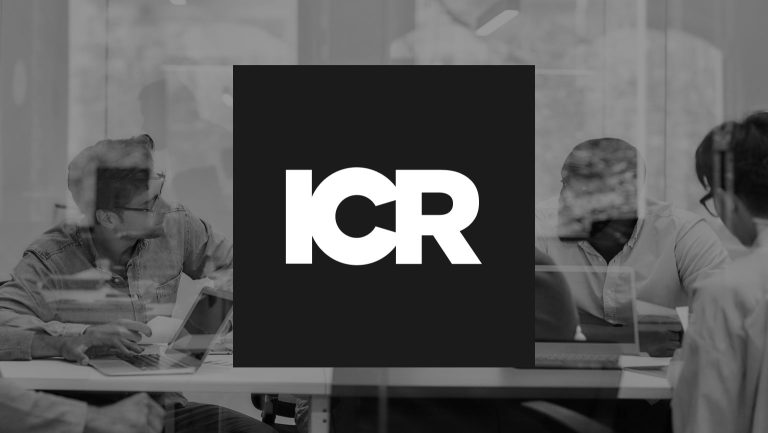In the May 2022 edition of The ICR D.C. Insider, we share our insights and analysis about developments in Washington that could have an immediate and long-term impact on your business.
The SEC
Requests For Information About Impact of Russian Invasion – With a detailed forward-leaning approach, the SEC has started to question U.S. public companies on how Russia’s war in Ukraine has affected, and will affect, their finances, corporate governance oversight of war-related risks, supply chain, and cybersecurity – and has asked about the impact of sanctions, import/export bans, reactions from customers/investors, and whether the company continues to pay taxes to the Russian government. The SEC’s Corporate Finance Division published a list of the data it wants in order to compel companies to provide more information to investors about their exposure to Russia, Belarus, and Ukraine. The SEC didn’t reveal which companies have received the letters.
Victories In Rulemaking Slowdown – Yielding to marketplace and bipartisan political opposition to the speed (i.e., short comment periods) the SEC is using for the proposals it wants to pass, the Commission announced that it has extended the deadline for comments on the climate disclosure rule to June 17 and will reopen the comment periods for proposals affecting private funds and trading platforms for U.S. Treasury securities. The content of all three proposals hasn’t changed.
- Prior to this announcement, the top Republican on the House Financial Services Committee, Patrick McHenry (NC-10), and the top Republican on the Investor Protection, Entrepreneurship, and Capital Markets Subcommittee, Bill Huizenga (MI-02), sent a fiery letter to Chairwoman Maxine Waters (CA-43) reiterating their demand for a hearing with the full SEC, saying, “…the SEC has embarked on a scorched earth rulemaking agenda that includes 54 separate items for fall 2021 alone – perhaps ‘the most ambitious agenda in the SEC’s 87-year history.’”
Climate Disclosure Plan – Positive and negative reactions to the SEC’s proposed climate change rules continue:
- Pro – The strategic campaign to help drive passage of the SEC’s climate disclosure rule proposal accelerated with the release of a poll commissioned by the liberal activist groups Americans for Financial Reform Education Fund and Public Citizen which found that 70% percent of investors support the rule proposal; 65% believe it is important for corporations, banks, and other financial institutions to disclose information to investors about their climate change risks and strategy; and only 36% of investors trust voluntary disclosures. The survey results were submitted as a comment letter to the SEC.
- Con – All 19 Republicans on the House Oversight & Government Reform Committee wrote to SEC Chair Gensler expressing a range of concerns about this rule proposal and requested a briefing and documents from the Commission. As the minority party, Republicans are limited in their oversight, but this focus suggests they will pursue this issue if they retake the majority next year. Challengers to this rule proposal also include a coalition of 22 law and finance professors who, in their comment letter to the SEC, said, “…the proposal seems to be heavily influenced by a small but powerful cohort of environmental activists and institutional investors, mostly index funds and asset managers, promoting climate consciousness as part of their business models.”
- Immediate Impact – Companies have seen an influx of climate-related shareholder proposals as a result of the SEC’s climate rule proposal and related efforts. Top banks and insurance companies are among the recipients of a record number of petitions about the climate impacts of their financial activities after the SEC’s decision in November 2021 to broaden the types of issues that it allows shareholders to raise at annual meetings.
An Enforcement Crackdown On Businesses Is Coming – Working together, the SEC and the Department of Justice are intensifying their enforcement efforts targeted at corporate America – by pressuring banks and financial institutions to turn in their clients and their own staffs for wrongdoing. With the SEC seeking larger penalties, and in some cases outright admissions of wrongdoing, and the DOJ using the powerful RICO (Racketeer Influenced and Corrupt Organizations Act) statute, the overarching focus centers on a common point: an approach based on the belief that markets are rigged in favor of institutions and the wealthy. Last month, Bloomberg reported that the SEC is focusing on stock warrants issued by SPACs, including a Bloomberg Businessweek analysis which found that in dozens of cases, big spikes in warrant trading preceded announcements by SPACs that they had reached an agreement to buy a business, sending their shares – and the warrants – soaring.
Next Up: More Bond Transparency – Chair Gensler wants to shorten the amount of time bond traders have to report their trades to industry self-regulatory organizations. In a virtual speech to the City Week conference in London, Gensler said, “The academic research overwhelmingly finds that post-trade transparency improves efficiency and competition in the markets they serve,” and that “the information reported to these systems, though, has not kept pace with changes in our markets and with technological advances.”
Cyber Incident Disclosure Comment Period Ending – The U.S. Chamber of Commerce has asked the SEC to either shelve or withdraw the proposal to get more input on how these rules would work in conjunction with other agency’s reporting rules, including those being set up at the Cybersecurity and Infrastructure Security Agency (CISA), which is part of Homeland Security. They also suggested that the SEC should consider a reporting deadline extension for companies actively working with law enforcement and that its narrow its definition of a significant cyber incident to just those that impact a company’s operations. In all, close to 100 companies, trade associations, individuals, and members of Congress filed comment letters.
Key Developments
U.S. & Allies Warn Organizations About Top Routinely Exploited Cybersecurity Vulnerabilities – U.S. and allied law enforcement and intelligence agencies issued a joint Cybersecurity Advisory on the common vulnerabilities and exposures frequently exploited by malicious cyber actors, and included the 15 most common exploits of 2021 – along with recommendations for mitigation.
Rules For “Open Banking” For Consumers Delayed By Privacy Concerns – A long-awaited U.S. “open banking” rule that could dramatically boost consumer finance competition and increase Americans’ access to financial services is being held up by privacy concerns. The Consumer Financial Protection Bureau (CFPB) rule would allow consumers to easily share their financial data with third-parties, thereby removing a key obstacle to switching service providers that might offer lower fees.
Fintech Regulation – The CFPB is also reviving a mostly unused procedure to examine nonbank companies that it believes pose risks to consumers in a move that expands the Bureau’s authority to regulate financial technology firms. “Given the rapid growth of consumer offerings by nonbanks, including fintechs, the CFPB is invoking a dormant authority granted by Congress to ensure these companies can be held to the same standards as banks,” CFPB Director Rohit Chopra tweeted.
To Drop Or Keep China Tariffs – President Joe Biden said he could drop some or all of the tariffs imposed against Chinese imports by former President Trump – which raised prices on everything from diapers to clothing and furniture – to help control rising consumer prices in the U.S.
- At the same time, the Administration took the first step toward reviewing the Trump-era Section 301 tariffs on more than $300 billion of Chinese products. The Office of the United States Trade Representative (USTR) notified U.S. companies that existing tariffs on List 1 ($34 billion) Chinese products will expire on July 6, 2022 and that requests for continuation must be submitted before then.
Congressional Action On China Trade – The House and Senate are working to find a consensus on the America Competes Act (sometimes referred to as the China competition bill). There is broad agreement on 2 of the 3 parts of the legislation: 1) funding to promote the domestic production of microchips; and 2) funding to advance domestic research. But the House and Senate are far apart on the trade title (the Senate trade title would repeal some Trump-era tariffs on Chinese products while the House version is more protectionist with respect to China and global business).


